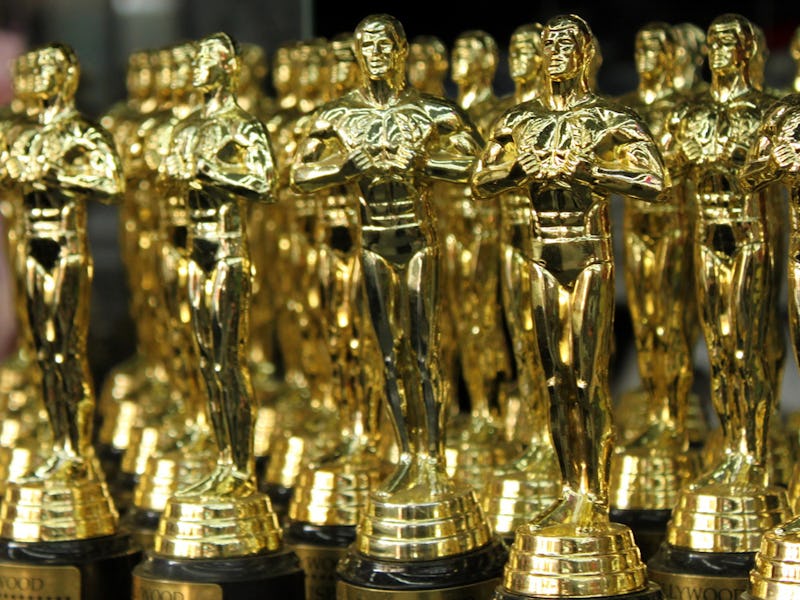How Did Green Book Win? A Perennial Best Picture-Guesser Explains the Math
Like we all learned to do in Algebra I, Daniel Joyaux starts at the beginning.

If given the opportunity, people will bet on just about anything. They will bet on the content of Donald Trump’s tweets within a certain time frame. They will bet on climate change. And, oh boy, will they bet on the Oscars.
Academy Awards betting has exploded in popularity in recent years, evolving from low stakes viewing party pools to a lynchpin in a national debate about legal betting. This year, New Jersey became the first state to officially allow fans to bet on the Oscars, pushing those who have built careers on predicting Oscar winners into the spotlight as well. Daniel Joyaux, a freelance film industry analyst, has developed a strategy that marries probability theory with the study of human behavior.
This formula has made him consistently accurate about the “big ticket” Academy Awards — Best Actor, Best Actress and Best Film — since he started getting “serious” about predicting Oscar winners about four years ago. Joyaux, who has worked within the film industry for a number of years, told Inverse that guessing the Best Film winner in particular, which is tabulated using a preferential ballot system, functions essentially as a seven-step math problem. It’s thanks to that system Joyaux was able to call Green Book’s victory despite Roma leading in the Vegas odds, deeply critical reviews and a litany of incredibly embarrassing PR incidents for the film’s mostly white creative team.
“I think the mistake people make is trying to predict what the final round of elimination will be like without trying to game out every round from the beginning,” explains Joyaux.
Why a Green Book Win Was in the Cards
As we all learned to do in Algebra I, Joyaux starts at the beginning. Academy voters are asked to rank all eight Best Film nominees by preference. Ultimately, one film — the winner — will end up with more than 50 percent of the total votes; to find that film, though, there are several elimination rounds, with fewer and fewer titles in the running each go-around. Joyaux’s first step is guessing the percentage of first-place rankings each film will get. This year, he predicted Vice, a biopic about former Vice President Dick Cheney (played by an unrecognizable Christian Bale), would initially snag only about six percent. Okay, thought Joyaux, so what do those voters value in a film?
“Snarky script and powerful acting” he says.
The next step is figuring out where those Vice votes will end up. The Favourite, then, a deliciously nasty period film by Yorgos Lanthimos (and starring future Best Actress winner Olivia Coleman) would attract the majority of those voters, Joyaux reasoned, along with Spike Lee’s BlacKkKlansman. Next film on the chopping block? Black Panther, whose voters would likely then cast lots for either BlacKkKlansman, or, if they’re just fans of ~ hits ~, A Star Is Born, Bohemian Rhapsody or Green Book.
Throughout the entire process as thought out by Joyaux, Roma, the Netflix-backed film by Alfonso Cuarón set in 1960s Mexico, was in the lead, which matched up with Vegas odds about who the actual winner would be. But that changed by the final, sixth round, when voters for BlacKkKlansman split their final lots thus awarding Green Book, the true(ish) story of African-American musician Don Shirley’s (Mahershala Ali) friendship with his Italian-American driver, Tony Vallelonga (Viggo Mortensen), the Best Film award with just 51 percent.
To be clear, this is all conjecture on Joyaux’s part, but ultimately, he was right. And he was right about Moonlight in 2016, and Spotlight in 2015. His method, a human version of Netflix’s suggested films algorithm, attempts to guess the inner-workings of a collective voting body of more than 7,000 members. And somehow, it’s often accurate.
Green Book's win may have boiled down to the way that Blackkklansman fans split their vote.
Now, unfortunately for those looking to casually jump on the awards season betting train, Joyaux says he has few tips.
“I don’t think anyone can be really good at this without making a commitment to understanding the industry and the Oscars and the way people are thinking,” said Joyaux.
But he does have one request: Please, please, do not bet your entire livelihood based on his predictions. Even he doesn’t do that. He sticks to a small, annual pool run by friends. Friends he met working for Sundance Film Festival, but still. Just a couple of friends, playing for, at most, “fifty bucks.”